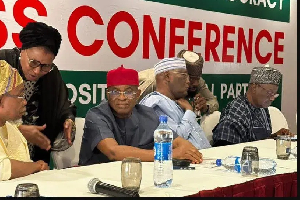TVS Motor Company has launched the TVS King Deluxe Compressed Natural Gas (CNG), a new gas-powered tricycle (Keke) in Nigeria.
The product was debuted in Edo State by the two-wheeler and three-wheeler manufacturers.
The development is expected to help customers cut petrol expenses and drive towards a greener future by reducing pollution and promoting eco-friendliness.
In a This Day report, Rahul Nayak, vice president of International Business TVS Motor Company, claimed that its product continues to lead the Keke market in Nigeria with its innovation and customer-centric offerings.
He said: We take immense pride in introducing the TVS King Deluxe CNG, the first CNG variant in the Nigerian market, aimed at improving and enhancing the well-being and prosperity of individuals.
With this addition, we are confident of setting benchmarks in style, performance, and safety in the Keke segment.
Features of the gas-powered Keke
The three-wheel vehicle has a more modern appearance with a bolder bezel, a tail lamp resembling a crystal, and a longer and more robust steering column.
A 30-litre CNG tank with international certification and a bi-fuel choice is included with the TVS King Deluxe CNG.
In addition, the dazzling new headlamps with increased brightness enhance safety and visibility.
Additionally, it has two layers of protection for the fuel-filling valve.
A potent and well-reliable 200 cc 4-stroke, liquid-cooled, single-cylinder SI engine, with a maximum power output of 6.3 kW @ 5500 rpm in the CNG model, powers the TVS Deluxe CNG.
Earlier, Nigeria's indigenous car manufacturing company, Innoson Motors, released the country's newly mass-produced compressed natural gas buses.
Legit.ng reported that the Nigerian government, via the Presidential Compressed Natural Gas Initiative (PCNGI) Steering Committee, said seven conversion centres had been installed across Nigeria.
Business News of Friday, 24 November 2023
Source: www.legit.ng













